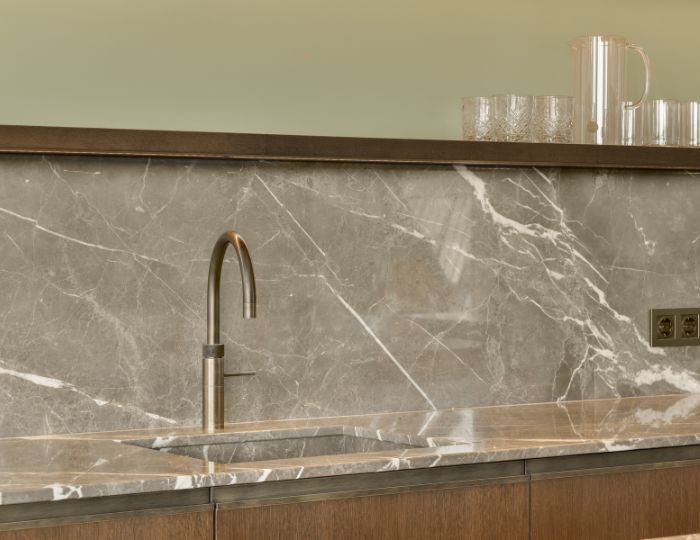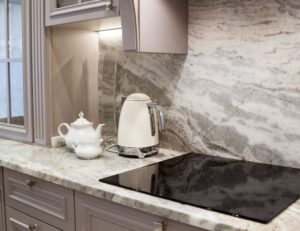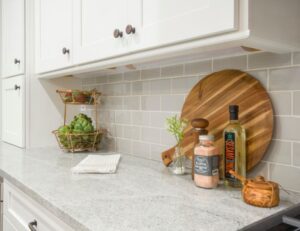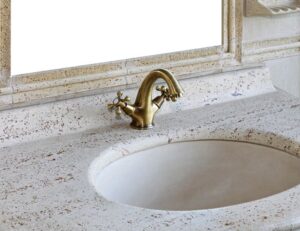When it comes to choosing natural stone surfaces for your home, granite and marble are two of the most popular options. Both offer elegance and durability, but they have distinct differences, especially when it comes to maintenance. Understanding the upkeep each requires will help you make an informed decision about which material is the best fit for your lifestyle.
Durability and Longevity
Granite: Known for its durability, granite is an igneous rock composed mainly of quartz and feldspar, making it resistant to scratches and heat. It can handle daily wear and tear better than marble and does not stain as easily. With proper sealing and maintenance, granite countertops can last for decades without significant signs of wear.
Marble: A metamorphic rock, marble is softer than granite and more susceptible to scratches, stains, and etching from acidic substances like lemon juice and vinegar. While it can still last for years, it requires more careful handling to maintain its pristine look. Homeowners who choose marble must be diligent with maintenance to prevent damage over time.
Sealing and Stain Resistance
Granite: Granite is naturally more resistant to moisture and stains compared to marble, but it still needs to be sealed periodically. A high-quality sealant applied once a year can help prevent staining from spills and prolong the stone’s lifespan.
Marble: Marble is porous, which makes it highly susceptible to staining. Without proper sealing, even water can leave marks on its surface. For best results, marble surfaces should be sealed every few months, and spills should be cleaned up immediately to prevent permanent damage.
Cleaning and Daily Maintenance
Granite: Cleaning granite is relatively easy. A mild soap and water solution or a pH-balanced stone cleaner will keep the surface looking great. Abrasive cleaners and acidic solutions should be avoided to maintain the stone’s finish.
Marble: Because marble is more delicate, it requires special care. A dedicated marble cleaner is recommended, as household cleaners with harsh chemicals can cause etching and dull the finish. Additionally, using coasters and placemats is advisable to prevent stains from food and drinks.
Cost Considerations
Granite: While granite is often considered the more affordable of the two, its price can vary based on the quality, rarity, and thickness of the stone. The long-term savings in maintenance costs make it a more budget-friendly option over time.
Marble: Typically more expensive than granite, marble requires ongoing maintenance that can add to its cost over the years. The need for frequent sealing and professional restoration services should be factored into the budget when choosing marble for countertops or flooring.
Restoration and Repairs
Granite: Because of its durability, granite rarely requires restoration unless it suffers from major cracks or chips. Minor scratches can be buffed out, and resealing is a straightforward process that enhances its longevity.
Marble: Restoration is more common for marble surfaces due to their susceptibility to scratches and stains. Professional polishing and refinishing services may be needed periodically to maintain the stone’s beauty, adding to its overall maintenance costs.
Which One is Right for You?
If you’re looking for a low-maintenance, durable option for your kitchen or bathroom, granite is the better choice. It offers strong resistance to heat, stains, and scratches, making it ideal for busy households. On the other hand, if you prioritize aesthetics and don’t mind the extra care, marble provides a timeless, luxurious appeal that can enhance any space.
If your granite or marble surfaces are showing signs of wear, professional restoration can bring them back to life. At Pure Light Cleaning, we specialize in high-quality granite and marble restoration services to keep your stone looking flawless. Contact us today to schedule an assessment and protect your investment!












